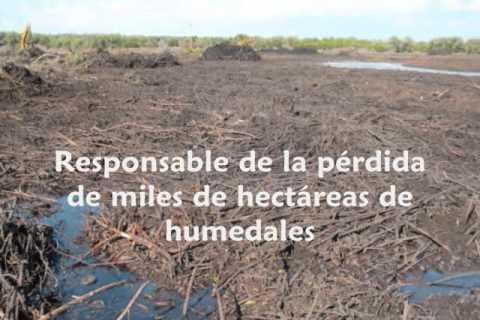I come from a family that considers seeds as something sacred. Back in my father's day, our neighbours could sleep peacefully, because they knew that my father had a safe supply of seeds to plant. (Family farmer, Paraíba)
Bulletin articles
On October 27, hundreds of indigenous men and women, fisherfolk and riverine community members occupied the construction site of one of the biggest hydroelectric dam projects in the world, the Belo Monte dam in the state of Pará, Brazil, which will have devastating impacts on the lives of the local population.
This past August 16, as many of you know, we lost our dear friend and colleague Ricardo Carrere. While Ricardo’s passing has signified a huge loss for us, at the same time, he has left behind an extraordinary legacy.
Ricardo Carrere passed away in the early morning of August 16, 2011. He had been suffering from lung cancer for some time but wished to remain as discreet as possible about the evolution of the sickness. Everything accelerated in a few days and the sad news took us completely by surprise.
On September 21st several activities will be coordinated around the world to celebrate the International Day of Struggle against Tree Plantations.
Over the last five or six years, forests have once again earned a prominent place on the international agenda. But this renewed emphasis has emerged in a very particular way: through discussions over the best way to conserve the carbon stored in forests. The goal of reducing carbon emissions from deforestation and forest degradation has led to the development of policies at international climate conferences that have come to stress a term that is rather strange and difficult to understand for many: REDD or, more recently, REDD+.
The world has been caught in a severe climate crisis as a result of the dramatic increase of antrophogenic (namely, caused by human beings) gases in the atmosphere causing a dangerous rise in the global temperature – what is known as global warming. However, though a global process, it has not been caused so “globally”. Neither all human beings bear the blame for such state of things nor are the ones that historically have contributed most to the problem –industrialized northern countries – taking on their responsibility.
In the Democratic Republic of Congo (DRC), Conservation International (CI) is promoting a REDD (Reducing Emissions from Deforestation and Forest Degradation) pilot project financed by the Walt Disney media and entertainment company. The project is being implemented in the Tayna and Kisimba-Ikobo nature reserves, and is one of the first of its kind in the region.
In 1999, a number of years before the emergence of REDD, one of the world’s first forest carbon projects was launched. A joint initiative of Brazilian NGO Sociedade de Pesquisa em Vida Selvagem e Educação Ambiental (Society for Wildlife Research and Environmental Education, SPVS) and U.S.-based NGO The Nature Conservancy (TNC), the project is located on the coast of the southern Brazilian state of Paraná, more specifically, in the municipalities of Antonina and Guaraqueçaba.
Mangroves around the world are suffering from alarming levels of destruction, often as a result of industrial shrimp farming, but also due to other predatory activities such as oil drilling.
Mangroves are a unique ecosystem hosting incredible biodiversity: migratory birds, marine creatures and reptiles in addition to associated species of flora. They function as a natural water treatment system; as spawning grounds for fish they provide several resources to local communities who directly or indirectly depend upon them for their livelihoods and sustenance. Intact mangroves form a natural coastline buffer against floods, storms or other natural disasters such as tsunamis and hurricanes protecting the coasts from the erosion.
The capacity of mangroves to store carbon has come to the fore.

